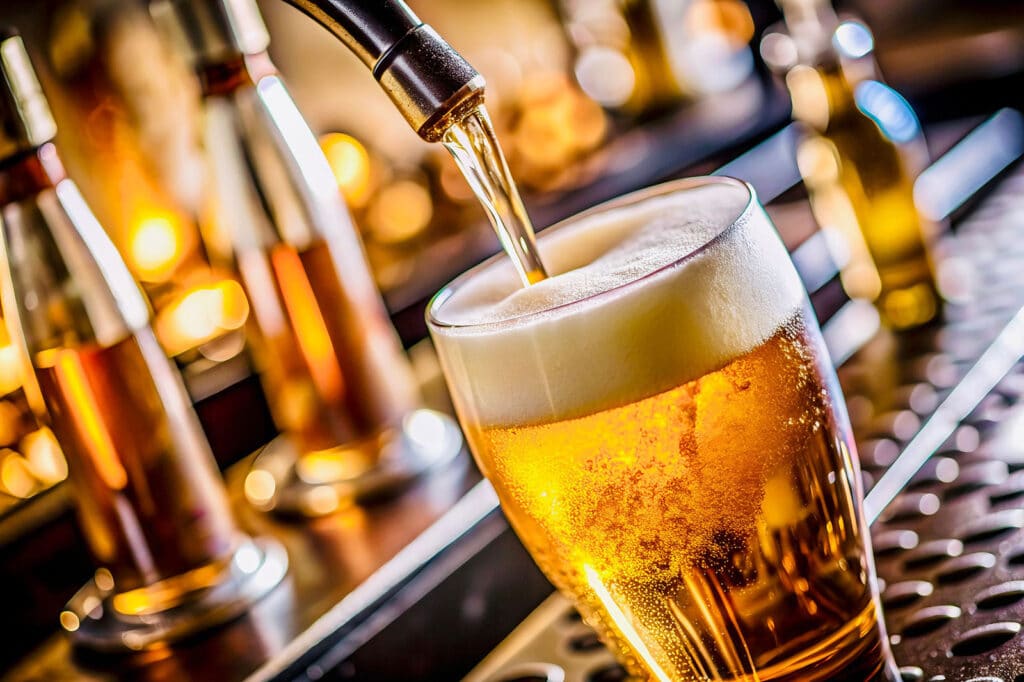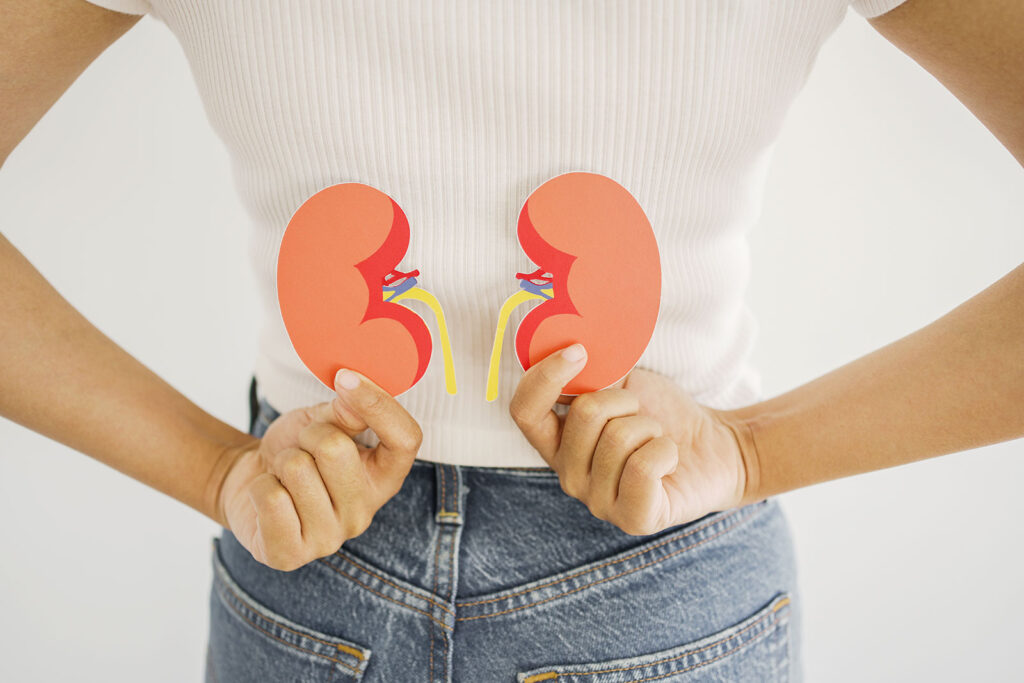Urinary tract infections (UTIs) are uncomfortable bacterial illnesses that inflame the urinary system, which includes the bladder, urethra, ureters, and kidneys. They commonly arise when bacteria enter the body through the urethra and then multiply. While UTIs can affect anyone, women are more susceptible to this illness because they have short urethras that give bacteria an easier passage into the urinary system.
Table of Contents
- Understanding the Connection Between Alcohol and UTIs
- Can Alcohol Directly Cause a UTI?
- How Alcohol Can Contribute to UTI Risk Factors
- Symptoms of UTIs and the Role of Alcohol
- Preventing UTIs While Drinking
- When to Seek Help for Alcohol-Related Health Concerns
- Illinois Recovery Center Can Help You Address Alcohol Misuse
Understanding the Connection Between Alcohol and UTIs
Drinking too much alcohol can be hard on your body and may potentially contribute to UTIs or worsen their symptoms. The impact of alcohol on the urinary system can lead to dehydration, which makes it easier for bacteria to thrive and cause infections. Understanding the relationship between alcohol consumption and urinary health can help you take precautions, such as staying hydrated and moderating your drinking, to lower the chances of developing a UTI.
Can Alcohol Directly Cause a UTI?
It would be wrong to say that drinking alcohol causes UTIs since these infections are bacterial. Instead, it’s more accurate to say that drinking alcohol can increase your chances of getting a UTI or make your symptoms worse.
Drinking alcohol can affect your body in ways that can negatively impact your urinary system and indirectly contribute to UTIs. Alcohol can weaken your immunity and make it harder for the body to fight, heal, and recover from bacterial infections.

People react to alcohol in different ways, and some people may notice that their urinary systems seem to be more sensitive to its effects. If you drink regularly and notice that you’re experiencing more frequent or worsening UTI symptoms, try to drink more water and cut down on your alcohol consumption until the infection clears up. If your symptoms get worse, be sure to reach out to a healthcare professional for treatment.
How Alcohol Can Contribute to UTI Risk Factors
Alcohol use and UTI symptoms are linked by how drinking affects the body. Excessive alcohol consumption contributes to dehydration, affects bladder function, and weakens the immune system, which can increase the chance of developing urinary tract infections. In cases of alcohol abuse, the risk factors are even higher due to the body’s diminished ability to fight off infections. On the other hand, practicing moderate alcohol consumption and staying properly hydrated can help reduce these risks.
Alcohol’s Effect on Hydration
Alcohol is a diuretic that can increase urine production and dehydrate your body. As your hydration levels decrease, your urine can become more concentrated with waste materials. These substances can irritate your urethra, bladder, and urinary tract and make your urinary system more hospitable to infectious bacteria. They can also worsen symptoms like frequent and painful urination that accompany a UTI.
When you’re drinking alcohol, drink enough water to stay hydrated. This will also help flush out toxins and help keep your urinary tract healthy, which is essential to UTI prevention.
Alcohol’s Effect on the Bladder
Alcohol can irritate the bladder lining, leading to inflammation and discomfort and potentially increasing the risk of UTIs. It can physically affect the bladder by suppressing the urge to urinate, causing delayed urination overstretching. Paradoxically, alcohol can also inhibit the release of antidiuretic hormone (ADH), which can increase urine flow, contribute to dehydration, and strain the urinary system.
Since people’s responses to alcohol can vary, alcohol can have a range of effects on bladder function. Nevertheless, people who currently have bladder problems or frequently get UTIs may find that alcohol worsens their symptoms.
Alcohol’s Effect on the Immune System
Your body’s immune system defends it against infections like UTIs and other illnesses. Drinking too much alcohol can damage your T cells and suppress your immune function, which makes it harder for your body to fight off UTI-causing bacteria.
Binge drinking or chronic heavy drinking can reduce the number of T cells and B cells in your bloodstream. These cells produce the antibodies that fight off infectious bacteria. Alcohol can also increase the amount of toxins that inhibit immune function and could cause UTI symptoms to persist.
Keeping your urinary system healthy involves staying hydrated, maintaining good hygiene, and watching out for your health. Your lifestyle choices can affect your well-being, so if you’re having urinary problems or infections, consider moderating your alcohol consumption and focusing on improving the health of your bladder. Researchers suggest drinking twice a week at most and consuming just two to three drinks each time.
Maintaining a strong immune system and being mindful of your alcohol consumption and bladder function can help you keep your urinary tract healthy and reduce your risk of getting a UTI.

Symptoms of UTIs and the Role of Alcohol
UTIs can have a variety of unpleasant symptoms, which can be mild or severe. Some of the most common signs of a UTI include:
- feeling a need to urinate more frequently than usual.
- feeling a strong, urgent need to urinate.
- experiencing pressure, discomfort, or pain in your pelvic area or lower abdomen.
- experiencing pain or a burning sensation while urinating.
- noticing that your urine is strong-smelling or cloudy.
- noticing a red, pink, or brownish tinge in your urine that indicates the presence of blood.
- feeling that you can’t empty your bladder completely.
If you experience symptoms of a UTI that fail to resolve quickly, be sure to contact a healthcare professional for guidance.
Preventing UTIs While Drinking
To keep your bladder healthy while you’re drinking alcohol, it’s important to stay hydrated. These tips can help reduce the negative effects of alcohol on your urinary system:
Drink Water Before You Drink Alcohol: To ensure that your body is fully hydrated, consume several glasses of water before you start drinking alcohol.
Alternate Alcoholic and Non-alcoholic Beverages: To reduce the diuretic effects of alcohol, switch between alcoholic and non-alcoholic drinks as time passes.
Avoid Highly Carbonated Beverages: Highly carbonated beverages can be irritating to your bladder and make you feel the urge to urinate more quickly, so consider drinking flat beverages instead.
Consume One Glass of Water for Every Alcoholic Drink: Try to drink at least one glass of water every time you consume an alcoholic drink.
Choose Pale or Light-Colored Drinks: Pale alcoholic beverages like gin, vodka, and white wine have a less dehydrating effect because they have fewer congeners than dark colored drinks, so think about staying away from red wine and dark liquors like bourbon, whisky, rum, and tequila.
Take Bathroom Breaks: To avoid overfilling your bladder, make an effort to urinate regularly.
Do Your Kegels: Practice pelvic floor exercises, or kegels, to strengthen and tone the muscles surrounding your bladder and help improve bladder control.
Pace Yourself: When you’re drinking, don’t rush. Drink slowly to manage your alcohol consumption and go easy on your urinary system.
Eat Something: When you drink on an empty stomach, its easier to dehydrate. Having dinner or snacks while you’re drinking can help alcohol absorb less quickly and reduce its effects on your bladder.
Drink Moderately: Try to limit your alcohol intake; drinking heavily can strain your bladder and quickly lower your hydration levels.
When You’re Done Drinking, Drink More Water: When you’re finished drinking alcohol, drink a few glasses of water to hydrate your cells and flush out damaging toxins.

When to Seek Help for Alcohol-Related Health Concerns
Coming down with a UTI is unpleasant, and it can cause significant health issues if left untreated. Frequent urination, pelvic pain, and discomfort when you urinate are common symptoms of urinary tract infections (UTIs). If you notice these signs, promptly seek medical advice from your physician or a urologist. UTIs are often caused by e. coli (escherichia coli), and early diagnosis and treatment options, like a course of antibiotics, can help stop the infection from worsening or making you seriously ill.
If you think that your drinking habits are contributing to recurrent UTIs or affecting your urinary health, speak with a healthcare provider. Excessive alcohol consumption can weaken the immune system, reducing the body’s ability to fight off infections. Proper hygiene practices, staying hydrated with plenty of water, and managing fluid intake can also play a significant role in maintaining urinary health.
Your doctor may recommend lifestyle adjustments, such as moderating alcohol use, improving hygiene practices, and avoiding bladder irritation caused by certain foods and drinks. If sexual activity or other factors like kidney stones, hormonal changes, or the use of a catheter are contributing to your condition, your healthcare provider can tailor a plan to address those issues as well.
If left untreated, UTIs can escalate to more serious conditions like cystitis, so addressing the issue early is essential for a full recovery. Whether you’re experiencing outpatient care or discussing concerns with a loved one, taking steps to protect your health is always a wise choice.
Illinois Recovery Center Can Help You Address Alcohol Misuse
Misusing alcohol can leave you feeling down, contribute to urinary tract infections, and impact your overall health. If your drinking is preventing you from feeling your best, seek help from the Illinois Recovery Center. Our kind and dedicated experts provide comprehensive addiction recovery services, including detox for those in need of immediate intervention. In a calm, supportive setting, we offer personalized alcohol addiction treatment options, using evidence-based methods and compassionate care to help you overcome your challenges. Our goal is to support you in achieving a full and rewarding life free from the grips of addiction. To learn more, visit us online at Illinois Recovery Center.



